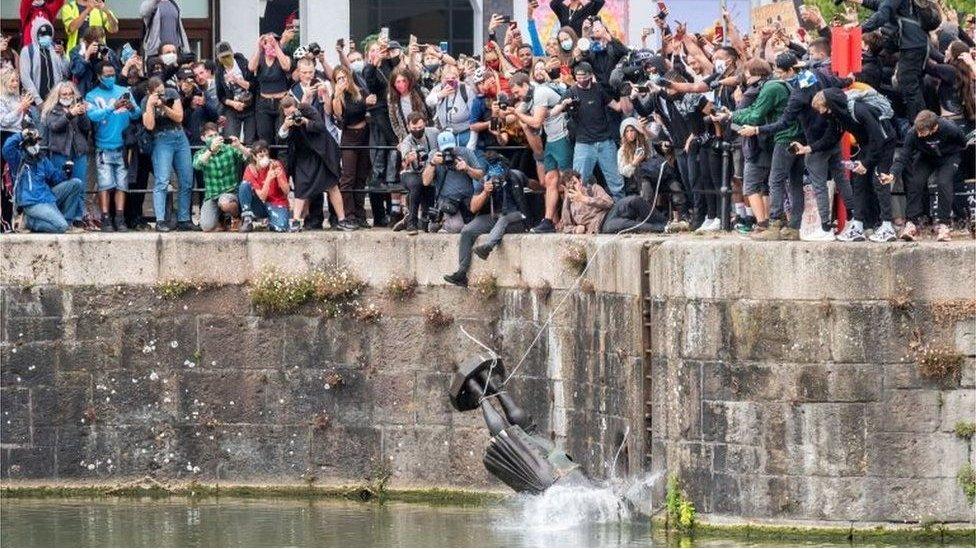Edward Colston statue case could be sent to appeal court
- Published
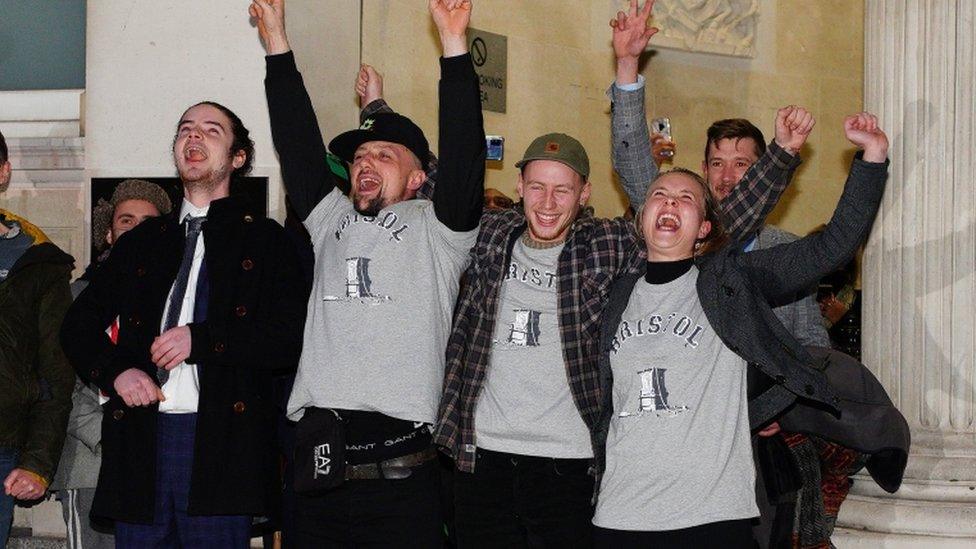
(Left to right) Sage Willoughby, Jake Skuse, Milo Ponsford and Rhian Graham were cleared of criminal damage
The Attorney General is "carefully considering" whether to refer the Bristol Edward Colston statue case to the Court of Appeal.
Four people were cleared of criminal damage at Bristol Crown Court for toppling the monument in June 2020 during a Black Lives Matter protest.
Suella Braverman said trial by jury was "an important guardian of liberty" but the result was "causing confusion".
The referral would not affect the acquittal, she added.
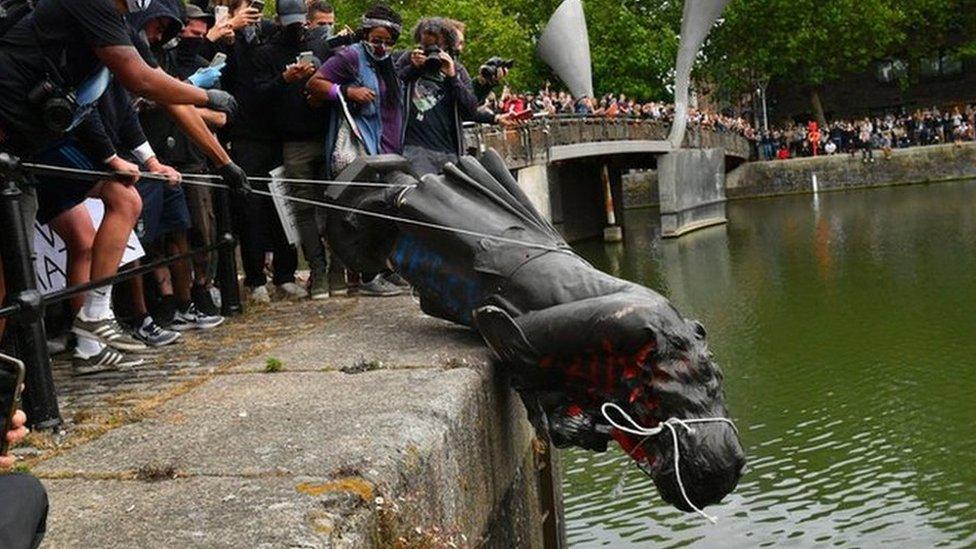
Colston's statue was thrown into Bristol's harbour
The verdict cannot be overturned and the defendants cannot be retried without fresh evidence.
Ms Braverman said she would decide, external whether to use powers that, as Attorney General, allow her to seek a Court of Appeal hearing so senior judges "have the opportunity to clarify the law for future cases".
Criminal justice debate
Milo Ponsford, 26, Rhian Graham, 30, Jake Skuse, 33, and Sage Willoughby, 22, were charged after the memorial to the slave trader was toppled on 7 June 2020. The statue was thrown into Bristol's harbour shortly after.
The defendants are all from Bristol apart from Mr Ponsford, who is from Hampshire, and were cleared of criminal damage after a trial.
The verdict has prompted a debate about the criminal justice system after the defendants opted to stand trial in front of a jury and did not deny involvement in the incident.
The defendants claimed in court that the presence of the statue was a hate crime and it was therefore not an offence to remove it.
Colston was a member of the Royal African Company, which transported about 80,000 men, women and children from Africa to the Americas.
On his death in 1721, he bequeathed his wealth to charities and his legacy can still be seen on Bristol's streets, memorials and buildings.
But the prosecution argued it was "irrelevant" who Colston was and the case was one of straightforward criminal damage.
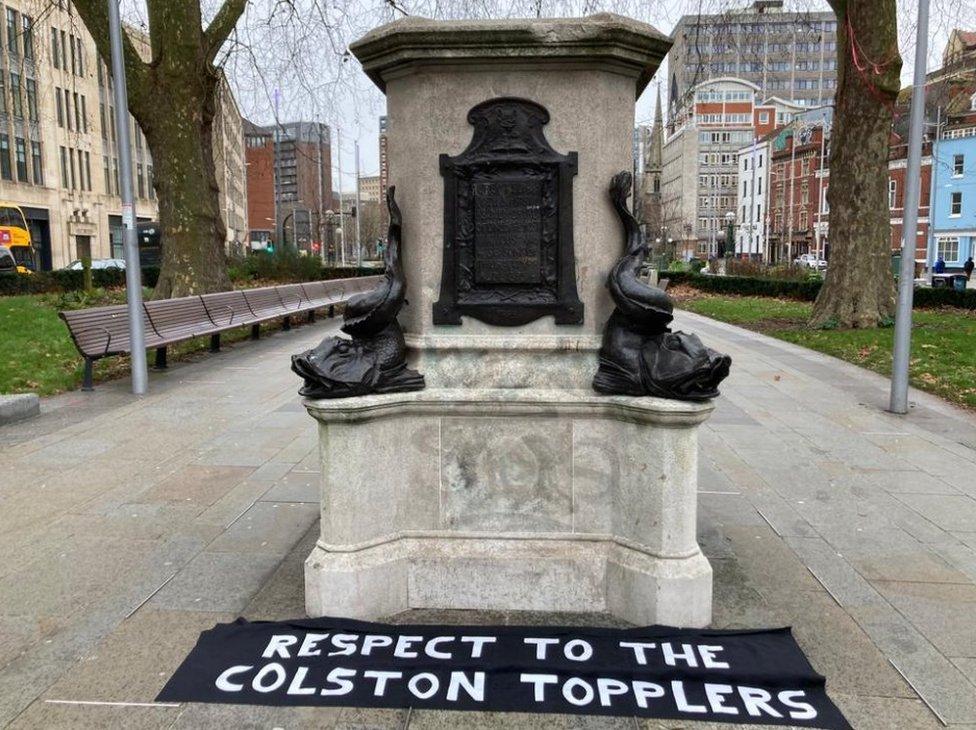
The defendants claimed the presence of the statue amounted to a hate crime, and it was therefore no offence to remove it
Several MPs expressed concern after Thursday's verdict, including former communities secretary Robert Jenrick.
"If you've broken the law and committed criminal damage you should be punished," he tweeted.
"If the jury is a barrier to ensuring they are punished then that needs to be addressed."
But, Commons leader Jacob Rees-Mogg said juries were the "great sublime protector of liberties".
Raj Chada, who represented Mr Skuse, said the "defendants should never have been prosecuted".

Follow BBC West on Facebook, external, Twitter, external and Instagram, external. Send your story ideas to: bristol@bbc.co.uk
- Published5 January 2022
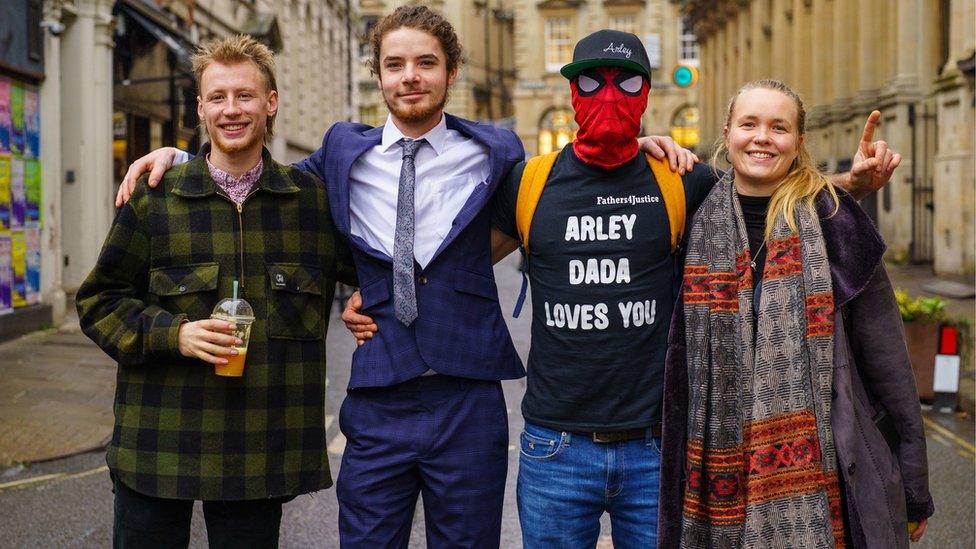
- Published16 December 2021
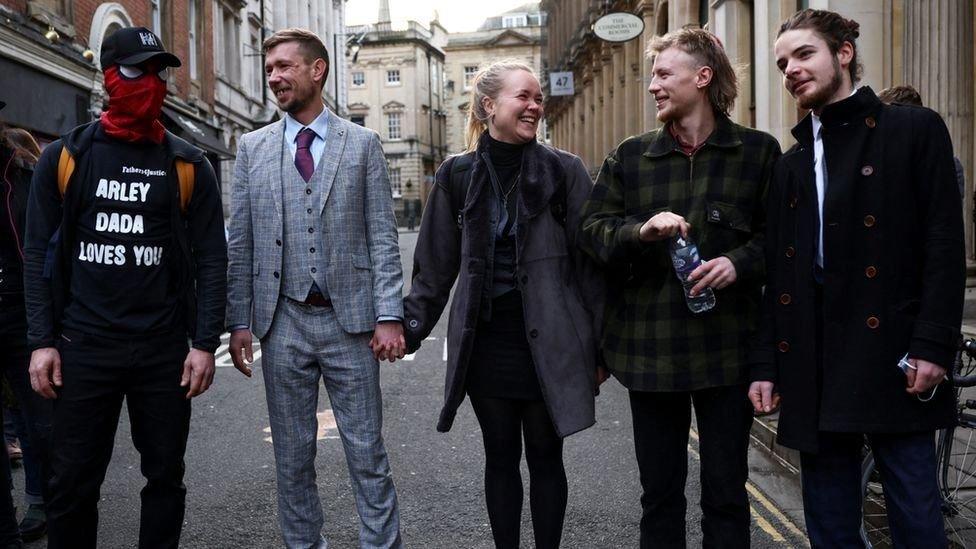
- Published15 December 2021
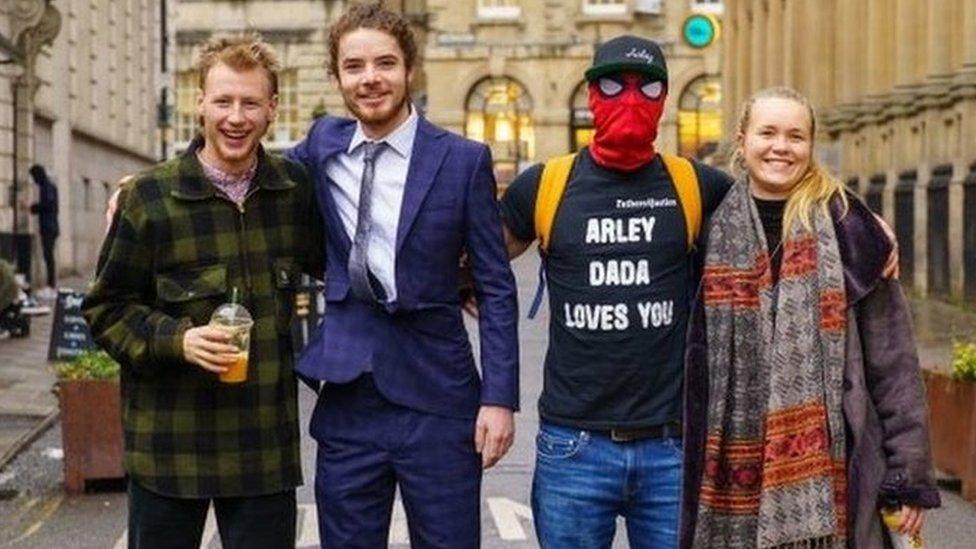
- Published13 December 2021
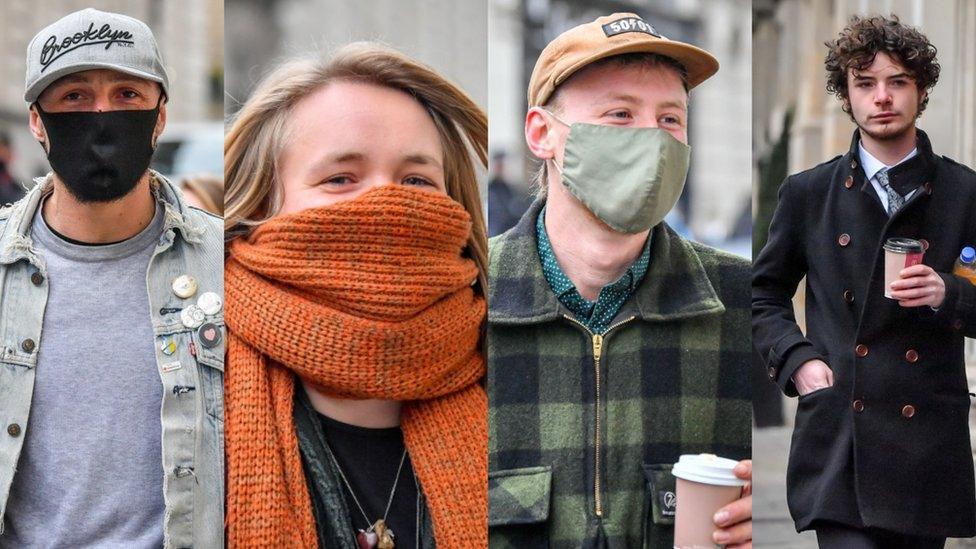
- Published28 May 2021
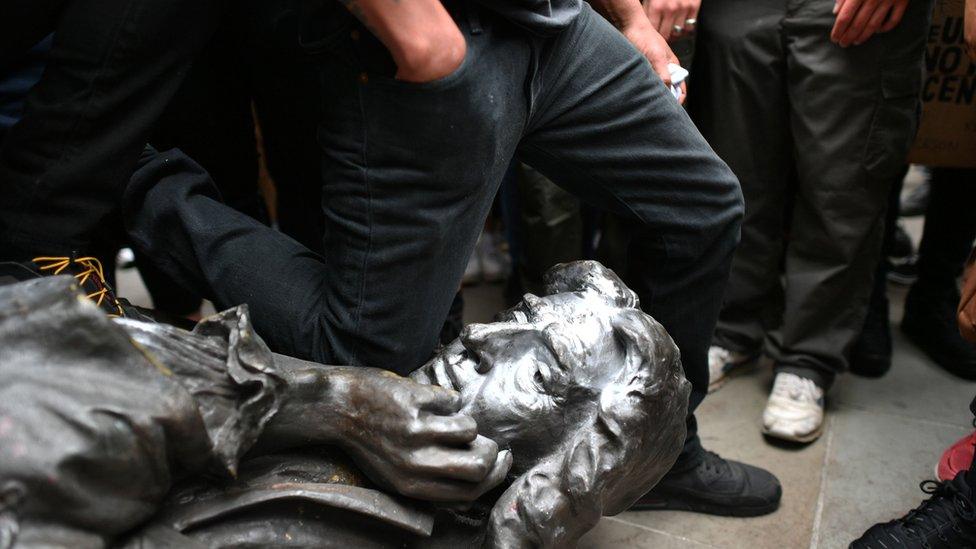
- Published11 March 2021

- Published25 January 2021
